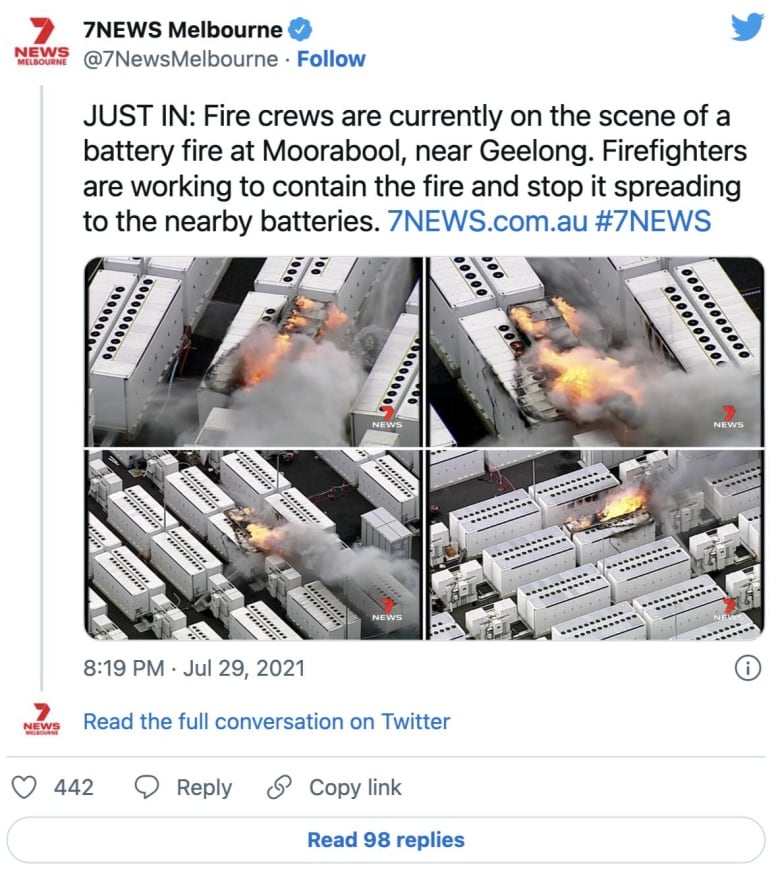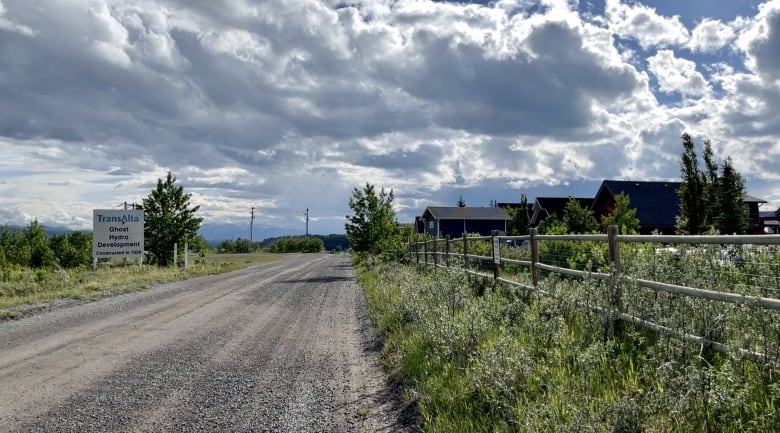Ghost Lake residents raise concerns about TransAlta energy storage system
Recent battery cell fires make homeowners apprehensive about the 180-MW facility

Mike Heier, 63, zips through his private, gated community west of Calgary in a golf cart, touring the area that features $750,000 cottages and $300,000 vacant building lots at the eastern end of the Ghost Lake reservoir.
Heier makes a stop on the embankment overlooking Ghost Lake and the Bow River. He points to a nine-acre (3.6 ha.) site where TransAlta is hoping to build a 180-megawatt battery energy storage system, believed to be the largest of its kind in the province.
The batteries will be charged by the nearby hydroelectric dam. About 360 megawatt-hours of electricity will be stored and then sold to the provincial grid during periods of peak demand.
Heier, speaking on behalf of approximately 60 other homeowners in the Cottage Club development, says TransAlta has chosen the wrong site for the lithium-ion batteries, which have failed and caught fire in a number of incidents around the world in recent years and have injured first responders.
Despite the company's efforts to block him and his community from participating in the Alberta Utilities Commission's (AUC) review of the project, Heier says he needs to speak out ahead of the AUC hearing into the project later this summer.
"We don't think that this has been that well thought out. We think that our community has been removed from having a say," he said.
Heier is also frustrated some of the maps filed by TransAlta to the AUC fail to highlight or label the Cottage Club community as a residential area.

Heier, who has five children and six grandchildren, is worried about the risks associated with a potential fire and the harmful fumes that might reach his community, which is between 350 and 800 metres from the proposed battery site.
He says reports have shown the fires are difficult to extinguish and can burn for days.
Heier says TransAlta hasn't done a good enough job consulting and engaging with him and his neighbours, who have raised concerns about the risks.

Residents have also raised concerns about site esthetics, noise, light pollution, dust, traffic safety, the use of fire suppression chemicals and leaching into the Bow River, and the impact on property values.
TransAlta declined to answer specific questions from CBC News related to the project.
"In the interest of fairness to all parties, we believe that it is important to respect the AUC's process and reserve any comments until the proceeding is completed. We look forward to participating in the AUC's thorough and timely review of our application and to the participation of all stakeholders," the company said in an email to CBC.

TransAlta instead provided links to a series of reports and documents it has filed with the AUC as part of its application — the topics include the project itself, community engagement, fire risk and plume and emissions analysis.
The company says it has followed project notification rules set out by the AUC and has consulted with dozens of people who live within 800 metres of the site.
TransAlta unsuccessfully tried to block Heier and the Cottage Club from participating in the AUC hearing process, citing a restrictive covenant on individual properties that prevents homeowners from interfering with TransAlta's operations. The AUC denied the company's request.
"They just simply did not want to hear anything from us, and the commission set them straight," said Heier.
Thermal runaway less likely
TransAlta says it plans to use a type of lithium-ion (Li-ion) battery that will be the least likely to go into thermal runaway — one of the primary risks associated with Li-ion batteries.
Thermal runaway occurs when the battery cell reaches an uncontrollable, self-heating state, according to UL Research Institutes. Thermal runaway can lead to extremely high temperatures, smoke, fire and the ejection of gas, shrapnel and particulates.

According to an air quality dispersion modelling and risk assessment commissioned by TransAlta, some types of Li-ion batteries can fail, leading to spontaneous combustion and thermal runaway.
The fires can burn for days and require tens of thousands of litres of water to put out or cool adjacent battery cells. Some fire officials have said the best way to fight the fires is to let them burn, something that can take days.
The report says TransAlta plans to use lithium iron phosphate batteries, which it says are less toxic than other types of Li-ion batteries. It says the two main compounds of concern from a potential fire are hydrogen fluoride and carbon monoxide. The company says it plans to include smoke and gas detectors in all of the battery modules, which it says will not exceed 200.
Harmful fumes contained at site
The consultant concluded emissions from a fire would exceed Alberta's ambient air quality objectives within the battery compound but would disperse by the time they reach the Cottage Club and would pose no health or safety concerns.
"All predicted air quality concentrations beyond the TransAlta property line and at the closest residences and recreational area comply with the AAAQO (Alberta ambient air quality objectives), stated the report.

"The IDLH (immediately dangerous to life or health) will not be exceeded at or beyond the BESS (battery energy storage system) site fence line for the air contaminants of concern."
"The risk to the public and local residents from a fire, associated with the type of battery cells proposed for this BESS, is low."
"Safety is paramount to TransAlta and is a key factor in determining the type of battery, the placement of batteries and our emergency response plans," the company said in a separate filing in December 2021.
A separate environmental assessment of the project — conducted for TransAlta — says it is not expected to have "a significant adverse environmental impact" on the terrain, soils, groundwater, vegetation or wildlife species.
Consultations, engagement
In a filing with the AUC, TransAlta outlined its community engagement and consultation strategy. It included an initial project newsletter that was sent out in October 2021, followed by project updates in November and December.
Project leaders met with the community's condominium board and residents in the fall of 2021 and held a virtual meeting attended by 10 people. Approximately 300 property owners, the majority of them in the Cottage Club, were notified about the project. Project employees reached 62 property owners during door-to-door visits, and nearly 400 calls and emails were either sent or received by the company.
At the time, the company said COVID-19 restrictions meant it would not host an in-person, town-hall meeting. The community invited TransAlta to an open-house meeting, but the company declined, saying it didn't receive enough notice.
TransAlta did not respond to a question about its attempt to block Cottage Club owners from participating in the AUC hearing.

County approves project without input
Heier says he and his neighbours are frustrated Rocky View County exempted the project from a land use redesignation and development permit, which would have triggered a public hearing.
The planning manager for the county said in a letter to TransAlta that the battery energy storage system is "ancillary infrastructure" to the hydroelectric facility, so land use or development approval would not be required.

TransAlta referred to the land use redesignation as "necessary" in its planning materials. It had also prepared a public notice for its application.
"We had zero consultation through our county," said Heier.
"So they just had it approved, and what would normally be a mail-out process where the community would be engaged because we're that close to it, there's absolutely zero engagement."
"I had a mail-out for my 40-square-foot office in my attic to everybody in the community," he said.
"When it comes to a $120-million project, right on our toes, there's nothing," he said.
The AUC hearing is scheduled for three days starting Aug. 3.
Bryan Labby is an enterprise reporter with CBC Calgary. If you have a good story idea or tip, you can reach him at [email protected] or on Twitter at @CBCBryan.

